HOW TO RELAX IN THE WATER? (SINK TO FLOAT AND FLOAT TO SINK)
If you are just starting out learning how to swim, or if you struggle to improve your swimming, you have probably heard someone along your swimming journey say: "You just need to relax more".
At that moment you also probably thought to yourself: "Yeah right. How am I supposed to relax if I am using every muscle in my body to stay afloat and to go forward?"
Believe it or not, being tense while swimming is one of the biggest issues many swimmers face. No matter what level swimmer you are, relaxation and trust in your body's buoyancy in water are the foundation of your learning-to-swim progress and make your swimming much more enjoyable.

Quick Jump To:
- ⚡ Quick Summary: Stop Sinking in 5 Mins
- 🎧 Listen: The Physics of Buoyancy (Audio Deep Dive)
- 🖼️ Visual Guide: Sink-to-Float Effect
- Why Relaxation Matters in Swimming
- Understanding Buoyancy: Sink or Float?
- How to Practice the Sink-to-Float Drill
- 🎥 Watch this video tutorial
- Common Mistakes and Relaxation Tips
- Next Steps: From Relaxation to Balance
- FAQ
⚡ Quick Summary: Stop Sinking in 5 Mins
Short on time?
If you feel like you sink like a stone, the problem likely isn't your body type, it's tension. Watch this short visual guide to understand the sink to float concept and the specific steps to trust your natural buoyancy.
Why Relaxation Matters in Swimming
To truly relax in the water, you first have to understand how your body behaves when submerged and how the water itself reacts to your movements.
Without this awareness, progress is tough, and swimming can feel like a constant struggle.
When you spend time simply playing and moving in the water, noticing how it supports you, your body starts to trust it. The more time you spend listening to the water, the more comfortable and confident you become.
Trust the process. Stop worrying about how far or fast you swim; go back to the basics, where learning to float, sink, and balance is more important than how far you swim. You will thank me later.
🎧 Listen: The Physics of Buoyancy (Audio Deep Dive)
Want to understand the "Why"?
In this podcast episode, we go deep into the psychology of the "fight or flight" response in water. We discuss why the horizontal position feels so unnatural for adults, why your legs sink when you panic, and how to mentally override the urge to lift your head.
Understanding Buoyancy: Sink or Float?
Before we get to the exercises, let's break a common myth about "staying afloat."
Many swimmers think: "How can I relax if I'm using every muscle to stay on top of the water?"
Well, the truth is most people float naturally just by taking a deep breath.
It's not about working harder or using every muscle; it's about using the right ones. Proper swimming isn't about floating on the water, but rather through it. Once you think of your body as something that glides through the water instead of fighting it, everything changes.
The Teeter-Totter Effect
Think of your body like a playground teeter-totter (seesaw). Your lungs, which are full of air, act as the center pivot or the "fulcrum."
On one side of the pivot, you have your upper body and head (which is heavy, weighing about 4-5kg). On the other side, you have your legs (which are very dense with bone and muscle).
Here is the physics: If you lift your head up to look forward or gasp for air, the teeter-totter tips. If the head goes up, the legs must go down.
To fix this, you have to work with the pivot. By relaxing your neck and looking down at the bottom of the pool, you "press the buoy" of your lungs down. This leverages your upper body weight to help lift your heavy legs up to the surface.
You can read more about this concept in the How to float like a dead man.
When you stop fighting gravity and start trusting buoyancy, you'll relax automatically and that's when real progress begins.
How to Practice the Sink-to-Float Drill
Now that you understand the idea of buoyancy and relaxation, it's time to practice.
Here's one of my favorite exercises for getting truly comfortable in the water. It is a series of sinking and floating exercises where you work on consciously relaxing most of the major muscle groups in your body and only engaging the muscles that matter.
The sinking and floating exercise that I like to teach maintain the body in a prone position at all times, so you will need to engage your core body muscles to keep yourself straight and learn to trust the buoyancy of your body in the water (see the video below).
🎥 Watch: A quick demonstration of the sink-to-float and float-to-sink drill in action.
Step-by-step:
-
Find your spot
Stand in a pool where the water reaches your chest or neck. The deeper, the better for this drill. -
Body position
Stand tall with arms at your sides like a soldier. Keep your neck straight and eyes looking forward. -
Shift your weight
Take a calm breath. Keep your body straight from head to heels, like a falling tree. Hinge only at your ankles, not your hips. If you bend at the waist, you break your alignment. Slowly lean forward while keeping your feet planted. Your toes or heels should stay in contact with the pool floor the entire time (depending on what direction you are sinking). -
Breathe and sink
As you tip forward, exhale bubbles through your mouth. You'll float briefly, then start sinking as you release more air. When you feel your body falling, stop exhaling and simply enjoy the sensation of sinking. Ahh, the beauty of a weightless freefall. -
Relax and listen
Once you reach the bottom, stay calm and still for a few seconds. Notice the quiet, the movement, and the feeling of weightlessness. When ready, gently stand up, no jerky movements, think relaxation.
Repeat the exercise and each time work on relaxing one more muscle in your body.
Common Mistakes and Relaxation Tips
- Holding too little air: Most beginners exhale too early or too much. Keep more air in your lungs, it's your natural floatation device.
- Tensing the neck and shoulders: Relax your upper body. Let the water support you.
- Kicking or fidgeting: These create resistance and anxiety. Be still and trust the water.
- Panicking when face goes underwater: Practice slow, rhythmic bubble-blowing to stay calm.
If you're still nervous about water entering your nose, you can use the human nose clip technique or a small nose plug until you're more confident.
You can continue with this sinking/floating exercise until there is no fear of falling into the unknown and you feel like you can relax while sinking.
Next Steps: From Relaxation to Balance
Once you can sink and float without tension, you're ready for the next stage, balance.
Try leaning backward next. Fall slowly, keeping your core engaged and your arms relaxed by your sides.
In this exercise, to keep water from entering your nose, you might want to either:
- hold your nose with your hand (don't forget to relax the arm though) or
- gently hum 'Mmm' through your nose as you sink (the outgoing air pressure prevents water from entering) or
- alternatively, use a bit more advanced procedure, employing the natural nose clip technique to keep water from going up into your nose.
You can create your own variations of this exercise, sinking sideways (not dropping your hip first), etc.
🖼️ Visual Guide: Sink-to-Float Effect
It is often hard to visualize how your lungs act as a fulcrum. We've created this diagram to show exactly what happens to your legs when you lift your head versus when you relax your neck.
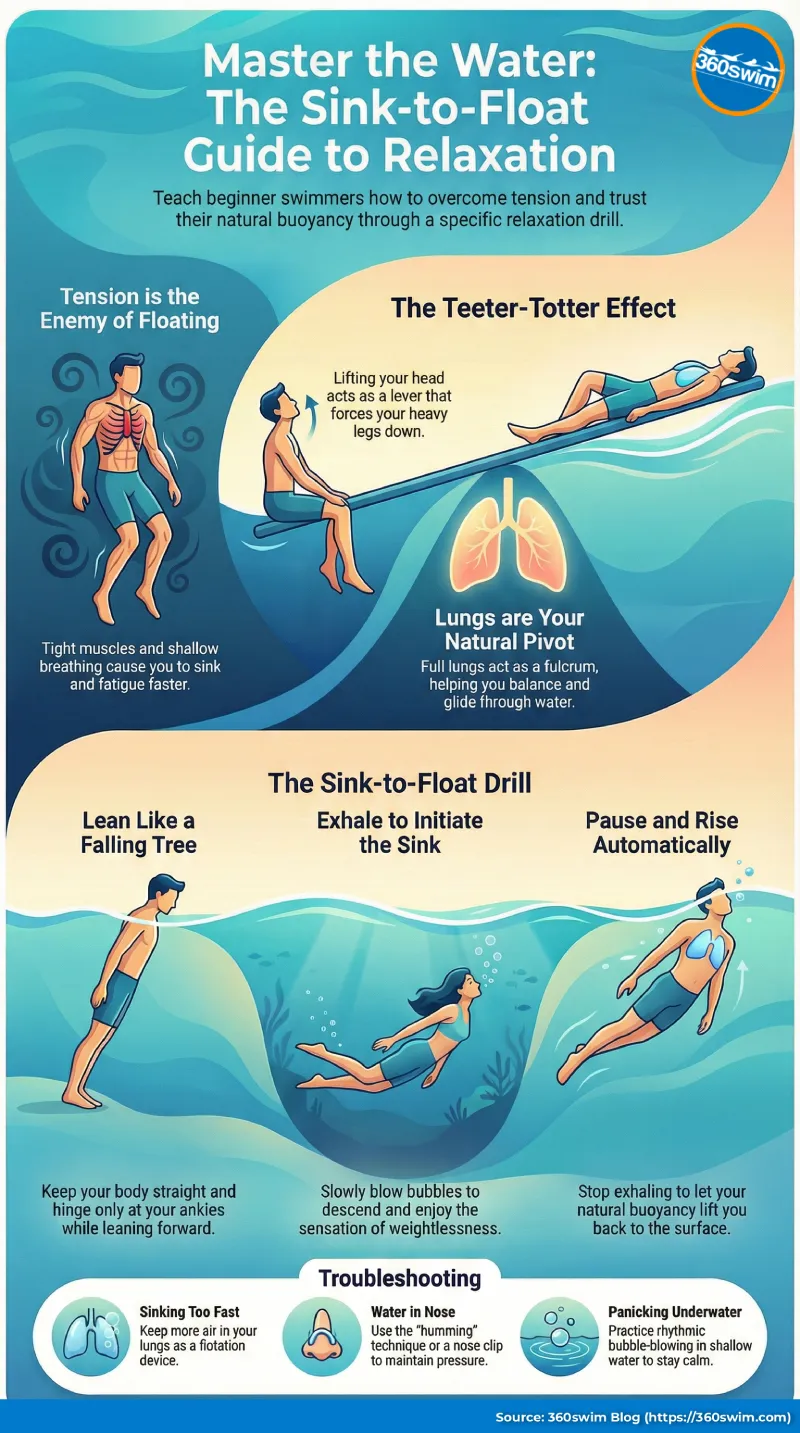
After you are a relaxation master and can sink without a muscle twitch or fear of being under water), then you are ready to go on to the next stage and learn to balance yourself in the water with streamlining and gliding. These teach you how to stay horizontal in the water and use your buoyancy to your advantage.
Remember, relaxation isn't about doing nothing. It's about doing just enough, smoothly and confidently.
Trust the water, and it will always hold you up.
Frequently Asked Questions
Why is it important to relax in the water when learning to swim?
Relaxation helps your body naturally float and move efficiently. Tension causes unnecessary effort, poor balance, and faster fatigue. When you relax, you use buoyancy instead of fighting it.
What causes people to sink instead of float?
Usually it's tension and holding too little air in the lungs. Even dense or muscular bodies float when the lungs are full and the body is relaxed. Exhaling too much or stiffening muscles makes you sink faster.
How can I learn to trust my buoyancy in water?
Start in shallow water and practice the sink-to-float drill. Take a breath, lean forward, exhale gently, and let yourself sink. Notice how you rise again when you stop exhaling, that's your natural buoyancy at work.
What is the sink-to-float exercise?
It's a simple relaxation drill: breathe in, lean forward in the water, exhale slowly to sink, then stop exhaling and feel yourself float back up. It teaches control, calmness, and awareness of buoyancy.
How can I stop panicking when my face goes underwater?
Practice in shallow water first and pair submersion with gentle exhalation. Keeping a steady rhythm of bubbles helps you stay calm and prevents water from going up your nose.
Does everyone float the same way?
No. Body composition, lung capacity, and posture affect buoyancy. But everyone can float with enough air in the lungs and relaxed muscles. Learning how your body behaves in water is key.
What should I focus on once I feel relaxed in the water?
Once you're comfortable, start practicing balance and body alignment drills, such as gliding, streamlining, or gentle kicking, to move smoothly and efficiently through the water.
 LNURL1DP68GURN8GHJ7URP0YHRXD3SWDMKJMFWVDHK6TMVDE6HYMRS9A4HSCNCWFXSH3NN0H
LNURL1DP68GURN8GHJ7URP0YHRXD3SWDMKJMFWVDHK6TMVDE6HYMRS9A4HSCNCWFXSH3NN0H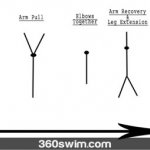


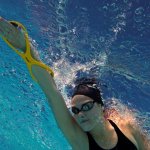

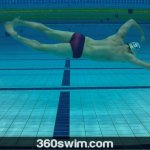
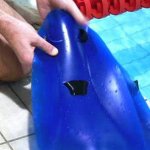


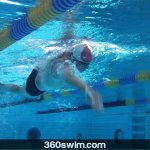

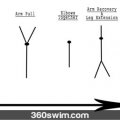
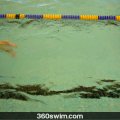

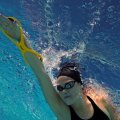
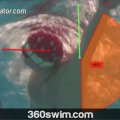
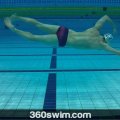
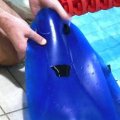


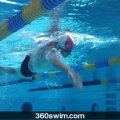

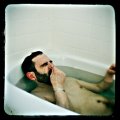
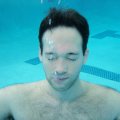
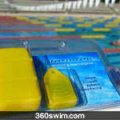



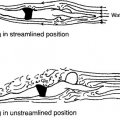
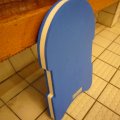
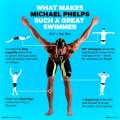
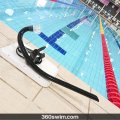
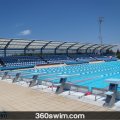
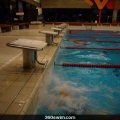


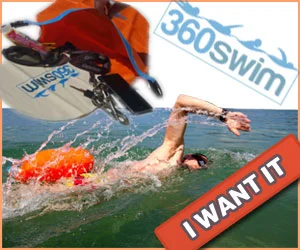

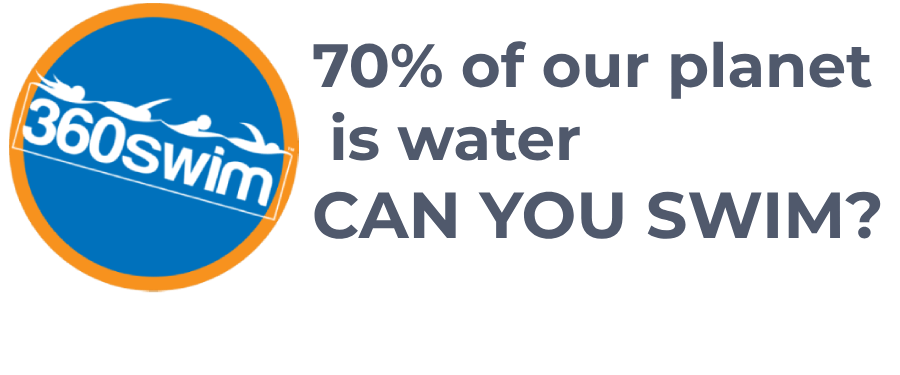
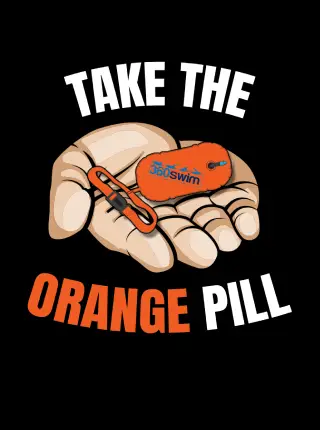
Comments (3)